Revisiting a place called lost and found
Making a lost and found is not only a practical solution, it highlights some of humanities best qualities
One of the best things about living in Munich, Germany is the beautiful river, called the Isar. The Isar runs through the city, flowing from South to North, almost cutting the city in half. Nearly everyday, I visit this river. Sometimes, I walk along the river's edge leisurely enjoying the bird sounds, and other times, I am jogging along, earbuds in, engrossed in my favorite podcast, The Fall of Civilizations. Often, when traveling along this path, I have encountered a key, a hat, or a pair of sunglasses perched on a stump, or hanging from a tree.
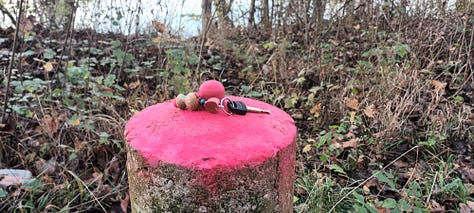
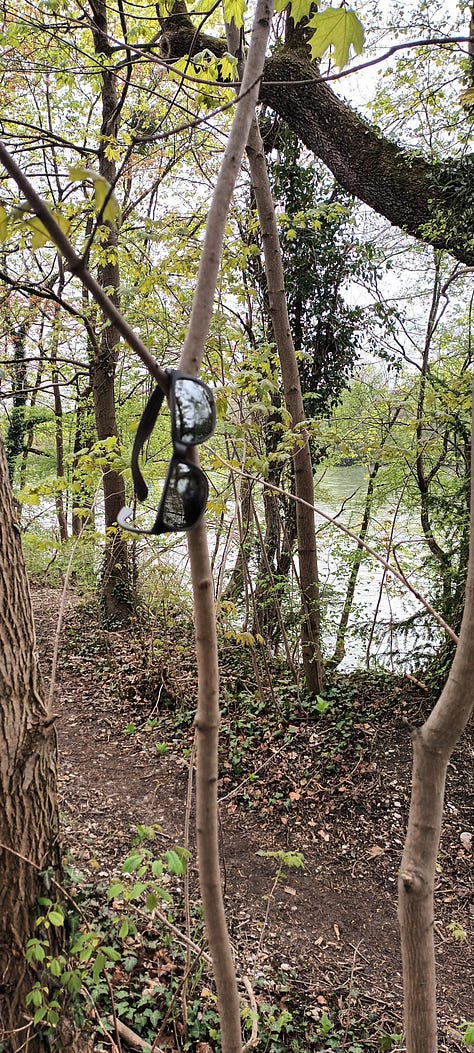
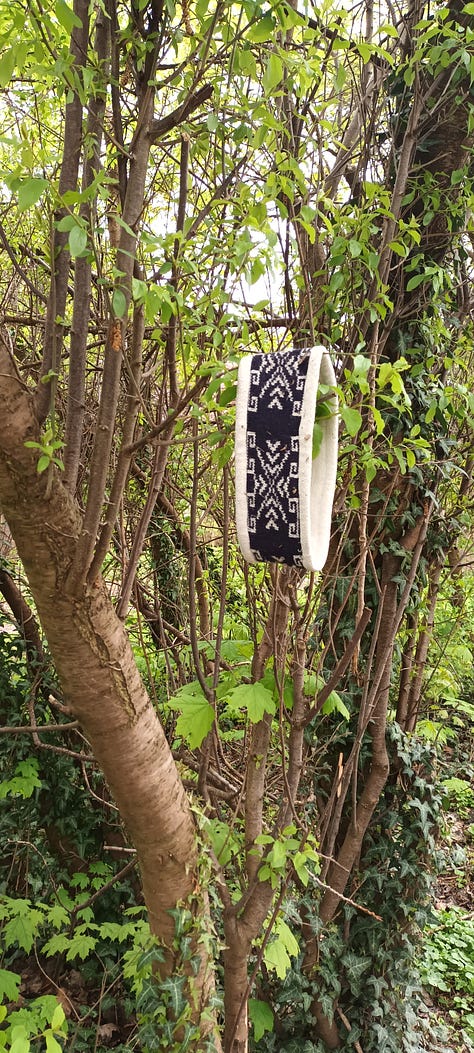
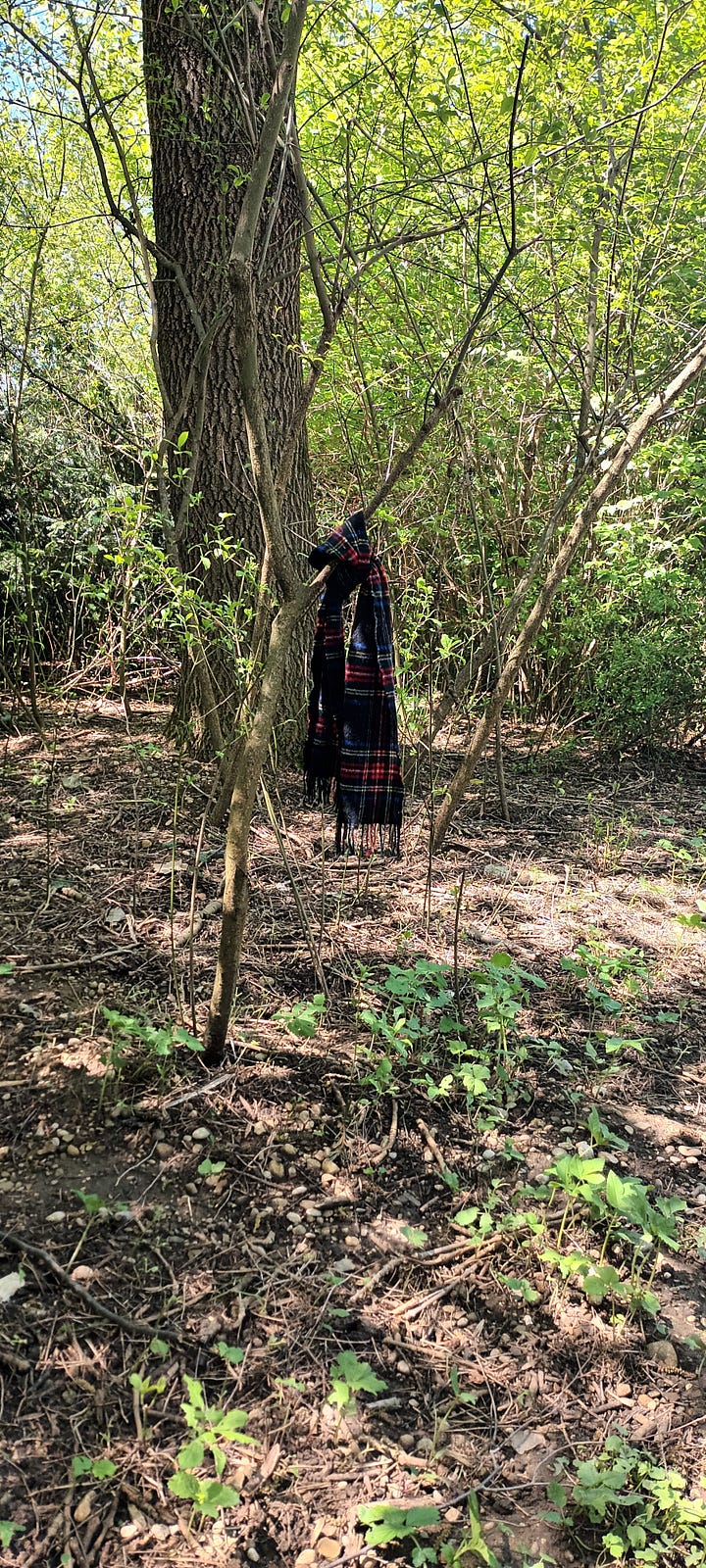
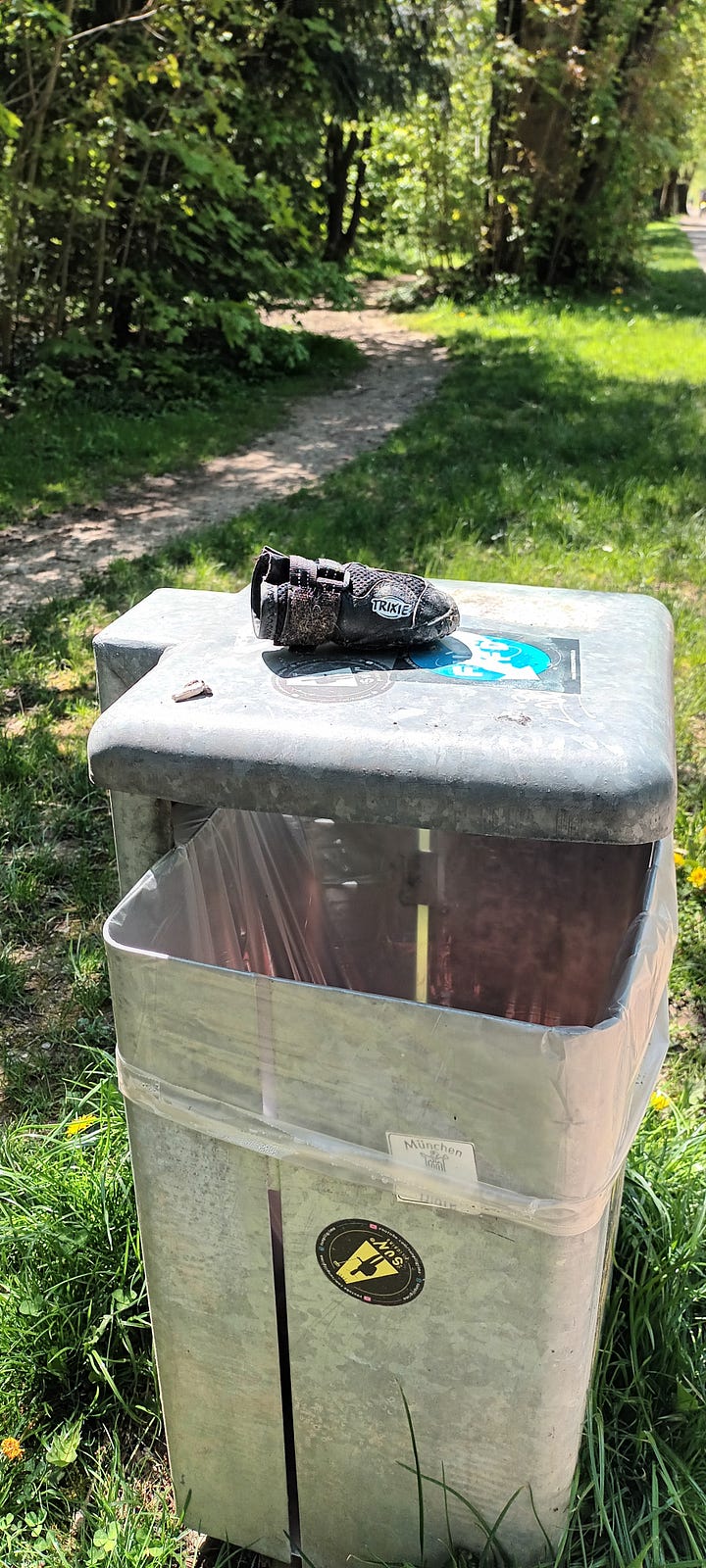
Admittedly, my first reaction was, “how did those glasses get there?”, but then I quickly realized, “oh, someone must have put them there on purpose.”
Some stranger, while enjoying their own time by the river, had noticed a stray pair of sunglasses lying on the footpath. They took a moment to stop and relocate the sunglasses to a safer and more visible place. An essentially thankless endeavor, motivated by the pure hope of reuniting the lost item with its owner.
If life were run like the boy/girl scouts, then whoever was responsible for this kind gesture would have certainly earned a special patch for being such a mensch! The charm of this generous act, however, is that it comes with no external reward. The unassuming saviour does not even get the satisfaction of knowing whether the original owner will ever return to retrieve their missing object. It is just one person willing to do a small act of hopeful kindness to help another. Elevating what had been trash littering the path into a lost, and potentially beloved, personal item, waiting to be found.
Every time I pass one of these lost items along the trail, I feel so much warmth in my heart. I imagine the owner of the lost sunglasses getting home, and realizing their sunglasses were gone. After searching the top of their head, their pockets and the baby stroller, at least three times, they reluctantly decide to retrace their path, which they surely don’t have time for (because who does). And, they do so, reluctantly, more from a sense of duty than a genuine hope of success. Then a sense of joy, elation even, overtakes them as they spot their sunglasses hanging from a branch along the trail. This moment of sweet reunion is flooded with a sense of unbelievable luck. And, then walking home with a smile on their face, flooded with deep gratitude for the person who placed them there.
Naturally, my sense of hope in humanity strengthens when I am witness to such exchanges. I think, “how can we nurture more simple kindness, like this, in the world?” And, then I remember there is an informal system that already exists for this type of thing; a special place, found all over the world, called, “lost and found.”
Managing the lost and found is usually not part of anyone’s actual job description. Yet, I bet your school or workplace or most institutions you are/were a part of have one. I remember benefiting from one at gymnastics camp growing up, and then overseeing one at the public pool where I worked during high school and college. Nearly everyone has at least one memorable story of when lost and found saved them.
More often than not, lost and found consists of a cardboard box stuck in an obscure location that requires permission for access. I personally was not a regular, per say, at any particular lost and found, but it was a place that I have run to in times of desperation, more than once in my life, hoping to see if it housed my favorite water bottle, a super cute off-white crocheted sweater I loved, and even my cell phone. Sometimes I got lucky and was reunited with my lost item. Other times, I was not, but it was comforting to know what to do and where to go in those immediate moments of loss.
What I love about the lost and found is how such a simple thing can provide so much value and meaning. It is a basic system, easily implemented anywhere, that solves a universal problem: humans lose valuable things. Lost and found highlights some of the best human traits: kindness, generosity, hope, and selflessness. It is a place that can restore trust in one another. A place that can make us feel lucky. A place that provides relief and enables second changes.
Of course, the lost and found is not flawless. Sometimes our items are not there. And sometimes the person who retraces their steps overlooks the glasses hanging on a branch because they are looking down at the ground. But, there is a pure generosity in the genuine effort of creating a specific place for this special purpose.
Inspired, I recently created a lost and found in my home. Now, the metal cake tray my mother in-law left and the plastic pony my niece put under the couch have a temporary home in a cardboard box in the closet in our spare bedroom. A simple way to solve a problem and make somebody’s day.





This is beautiful Ann!
A truly lovely piece of writing, Ann. Thank you!